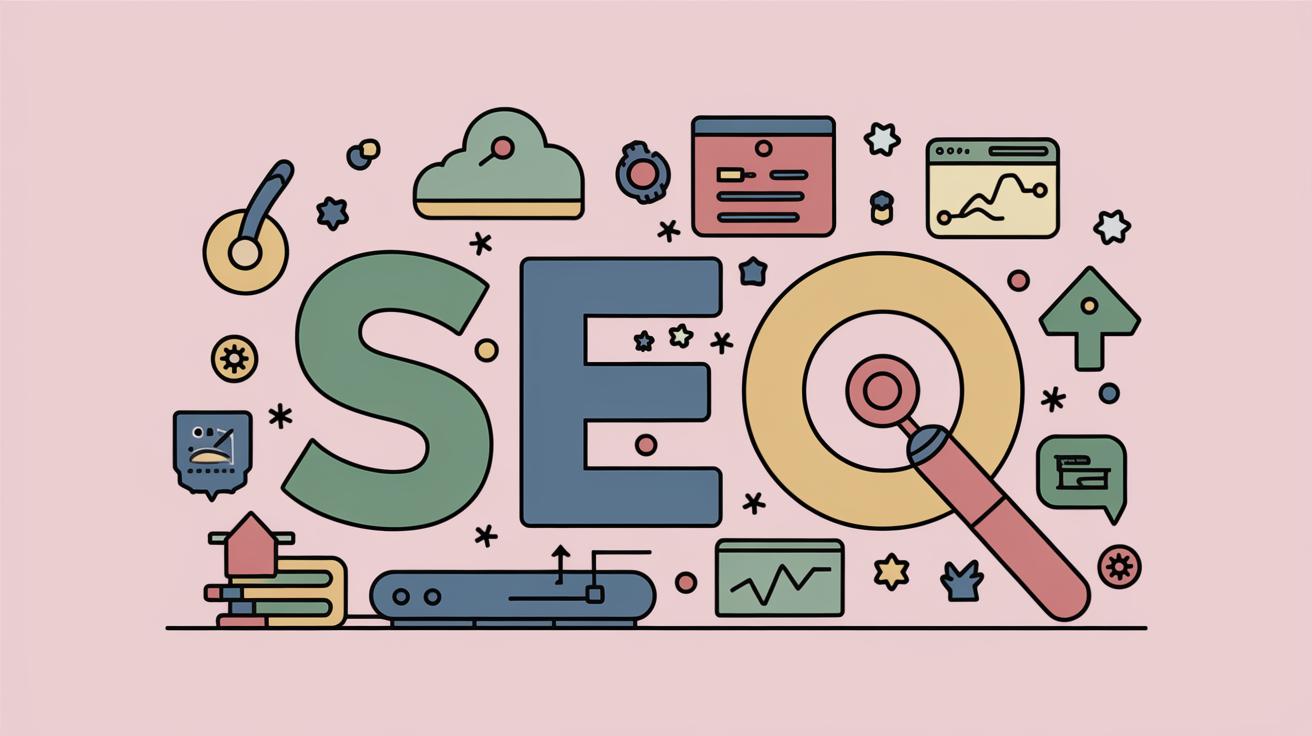Understanding Digital Marketing Strategy
In today’s rapidly evolving digital landscape, a well-rounded digital marketing strategy is essential for businesses striving to maintain a competitive edge. This comprehensive guide delves into the intricacies of digital marketing, offering insights into its operational mechanisms and a detailed exploration of various marketing channels. Covering key performance indicators, common challenges, and the role of agencies, this article provides a solid foundation for those looking to understand or embark on a digital marketing journey. Whether you’re a budding digital marketer or a seasoned professional, this guide presents valuable information on essential skills and strategies needed for success in the online marketing realm, ultimately offering a glance at the future prospects of digital marketing.
What Is Digital Marketing?
Digital marketing refers to the use of digital channels to promote or market products and services to consumers and businesses. This includes both online and some offline strategies that have become integral in the business world. Through channels like search engines, social media, email, and websites, companies engage their target audience with personalized messaging and tailored offers.
Its advent has transformed traditional marketing from a paper-based advertisement approach to a more data-driven one. This shift allows marketers to measure the impact of their campaigns with greater accuracy and adjust their strategies in real-time to optimize results.
Key Takeaways
Digital marketing is essential for connecting brands with their customers in today’s digital-first world. It encompasses a wide range of techniques and channels, each playing a significant role in the broader strategy. Importantly, understanding customer behavior and data analytics is fundamental to effective digital marketing.
Keeping up with the pace of digital advancements and integrating the right technologies is paramount for any business seeking success. By leveraging these tools, companies can create more personalized and engaging customer experiences.
How Digital Marketing Works
Digital marketing works by leveraging various online tactics to connect with consumers who are spending time online. These elements can range from content marketing and SEO to social media engagement and email outreach. The core function is to increase visibility and nurturing customer relationships through tailored communications.
At its heart, digital marketing is built on data analytics and metrics. Companies can track the effectiveness of their campaigns through different indicators, analyzing which strategies deliver the best results and adjusting their efforts accordingly for maximum impact.
Important
Understanding the customer’s journey is crucial. This insight helps marketers tailor their messaging and targeting methods to meet each consumer’s specific needs at each touchpoint. Additionally, experimentation with A/B testing and adapting strategies based on data insights can significantly improve marketing outcomes.
Moreover, compliance with data protection laws, notably the GDPR, is gaining importance. Responsible data handling builds consumer trust and enhances brand reputation in a time when privacy concerns are increasing.
Types of Digital Marketing Channels
Website Marketing
Websites serve as the central hub for digital marketing activities. A well-designed, user-friendly website plays a vital role in converting visitors into customers. It demonstrates your brand identity and offers valuable information that guides visitors through the sales funnel.
Search Engine Optimization (SEO) is crucial in ensuring your website ranks well on search engines like Google, enhancing visibility and attracting organic traffic. The aim is to optimize your site to improve user experience while aligning with search engine algorithm requirements.
Pay-Per-Click Advertising
Pay-Per-Click (PPC) advertising is a model where advertisers pay a fee each time their ad is clicked. It is a way to buy visits to your site rather than earning them organically. Google Ads is among the most popular platforms where businesses achieve significant returns.
PPC provides the advantage of reaching audiences based on specific demographics and keywords, offering immediate visibility and results in driving traffic and generating leads.
Content Marketing
Content marketing involves creating and sharing valuable content to attract and engage a target audience. The goal is to educate and inspire consumers to take action, positioning your brand as an authority in your field.
Blog posts, videos, infographics, and ebooks are some of the formats used in content marketing. Consistent, high-quality content helps build customer loyalty and enhances SEO efforts.
Email Marketing
Email marketing is a highly effective digital marketing strategy that involves sending emails to prospects and customers. Personalized and targeted email campaigns can convert prospects into customers and turn one-time buyers into loyal fans.
Segmentation and automation are key tactics in email marketing, enabling brands to deliver tailored messages that resonate with specific audience segments, leading to higher conversion rates and customer retention.
Social Media Marketing
Social media marketing leverages platforms like Facebook, Instagram, Twitter, and LinkedIn to reach and interact with a broader audience. It involves creating and sharing content, advertising, and engaging with followers.
The interactive nature of social media offers brands a chance to build community, listen to customer feedback, and humanize their brand image, significantly influencing brand loyalty.
Affiliate Marketing
Affiliate marketing is a performance-based strategy where businesses reward affiliates for bringing customers through the affiliate’s own marketing efforts. It is built on revenue sharing, where affiliates are paid for the sales they generate.
This approach allows companies to leverage a broader network, driving sales from others’ promotions, thus extending their reach while keeping marketing costs variable and relatively low.
Video Marketing
Video marketing involves using videos to promote and inform customers about products or services. It increases engagement on digital platforms and educates consumers on features and stories behind a product.
With platforms like YouTube and social media embracing video content, this format has become indispensable for engaging audiences and can significantly enhance conversion and sales.
Text Messaging
Text messaging, or SMS marketing, is an underrated yet effective direct marketing channel. It is suitable for time-sensitive offers, reminders, or updates, reaching consumers directly on their mobile devices.
Since SMS messages boast high open rates, they represent a powerful tool for communicating with customers instantly, ensuring timely delivery of critical information.
Key Performance Indicators (KPIs) in Digital Marketing
KPIs are the measurable values that determine the effectiveness of your digital marketing efforts. Common KPIs include metrics like website traffic, conversion rates, click-through rates, and ROI.
Tracking KPIs allows marketers to evaluate which strategies are effective and which are not, optimizing tactics to align marketing outcomes with business objectives effectively.
Digital Marketing Challenges
Despite its many opportunities, digital marketing presents several challenges, such as maintaining data privacy, dealing with algorithm changes, and adapting to consumers’ evolving preferences.
Additionally, the saturation of digital channels creates competition for consumer attention, necessitating innovative approaches and the continual enhancement of marketing techniques.
What Is a Digital Marketing Agency?
A digital marketing agency offers a wide array of services designed to improve a company’s online presence and performance. They specialize in strategies across different digital channels, from SEO and PPC to content creation and social media management.
Using specialized skills and technologies, these agencies help businesses create effective marketing plans and campaigns, allowing them to focus on their core operations.
What Is SEO in Digital Marketing?
Search Engine Optimization (SEO) involves optimizing your website and content to improve rankings on search engine results pages (SERPs). The goal is to increase organic traffic from search engines with higher visibility and relevance.
SEO encompasses keyword research, content creation, on-page optimization, and acquiring quality backlinks. It is a critical component of digital marketing, driving long-term website traffic and credibility.
What Is Internet Marketing?
Internet marketing, also known as online marketing, is an umbrella term that covers all marketing efforts that use an electronic device or the internet. Businesses leverage digital channels like search engines, email, websites, and social media to connect with their audience.
This form of marketing is distinguished by precision targeting and data analytics, allowing for personalized marketing approaches and improved tracking of campaign effectiveness.
How Can You Become a Digital Marketer?
Becoming a digital marketer requires a combination of formal education, practical experience, and continual learning. Many start with a degree in marketing or a related field, while hands-on experience with digital tools and platforms is invaluable.
Staying updated with the latest industry trends and technologies is crucial. Many digital marketers enhance their skills through courses, certifications, and immersive workshops.
What Skills Are Needed in Digital Marketing?
Essential skills for digital marketers include data analytics, content creation, SEO, social media management, and email marketing. Being adept with tools like Google Analytics, CRM software, and various content management systems is advantageous.
Soft skills like creativity, adaptability, and communication are equally important, as marketers must craft compelling messages and respond to the dynamic digital landscape.
What Is Implicit Bias in Digital Marketing?
Implicit bias in digital marketing refers to the unconscious associations or attitudes that influence marketing decisions, often resulting in unintended exclusion or misrepresentation of diverse groups.
Awareness and mitigation of implicit bias are crucial in ensuring inclusive and equitable marketing strategies that resonate with a diverse audience and accurately reflect brand values.
The Bottom Line
Digital marketing is a dynamic and expansive field, integral to modern business success. By understanding its components, strategies, and challenges, businesses and marketers can harness its potential to foster growth and engage with their audiences meaningfully. The ever-evolving nature of digital marketing presents continuous learning opportunities, promising a future where technology and creativity drive innovation.
| Section | Summary |
|---|---|
| What Is Digital Marketing? | Explores the definition, scope, and evolution of digital marketing. |
| How Digital Marketing Works | Discusses the operational aspects and importance of data analytics in digital marketing. |
| Types of Digital Marketing Channels | Examines various digital marketing channels, including websites, PPC, content, and social media marketing. |
| Key Performance Indicators (KPIs) in Digital Marketing | Highlights the metrics used to measure the success of digital marketing strategies. |
| Digital Marketing Challenges | Identifies common obstacles and competitive aspects in digital marketing. |
| What Is a Digital Marketing Agency? | Introduces the role and advantages of engaging a digital marketing agency. |
| What Is SEO in Digital Marketing? | Explains SEO’s role in improving search engine rankings and site visibility. |
| What Is Internet Marketing? | Defines internet marketing and its focus on digital channels and audience engagement. |
| How Can You Become a Digital Marketer? | Describes the pathway to becoming a digital marketer through education and experience. |
| What Skills Are Needed in Digital Marketing? | Lists essential technical and soft skills required for a successful digital marketing career. |
| What Is Implicit Bias in Digital Marketing? | Discusses the impact of unconscious biases on marketing strategies and audience inclusivity. |


